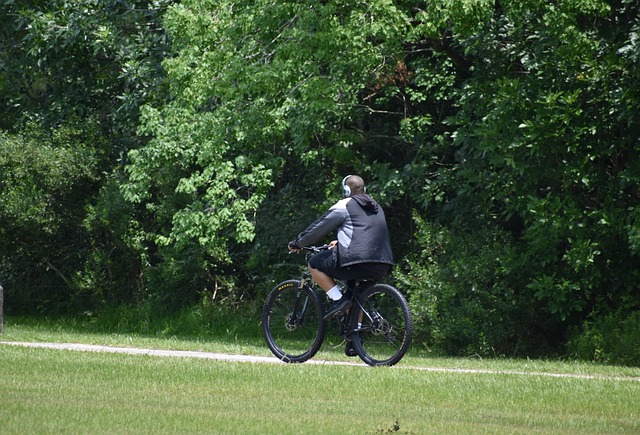Regular aerobic exercise can help reverse the heart palpitations caused by diastolic dysfunction, which can lead to diastolic heart failure. The beating of the heart is divided into two phases: systole and diastole.
Exercise and Diastolic Dysfunction
Diastolic dysfunction limits the amount of blood the heart can pump with each beat, leading to limited exercise capacity and dyspnea.
Exercise and Your Heart
Exercise and regular physical exercise have various heart health benefits, including:
- Improving lung function
- Lowering blood pressure
- Lowering high cholesterol
- Lowering high blood sugar
- Lowering high triglycerides
- Increasing heart muscle strength
Exercise Precautions
Sedentary individuals should gradually increase exercise intensity, duration, and frequency over time, with specific safety guidelines provided. Walking at 3 miles per hour is safe and effective.
RELATED: Exercises For Heart Palpitations
Being Active When You Have Heart Palpitations
Start with lower intensity and shorter duration of physical activity to build up the capacity to support cardiovascular demands.
A healthcare provider may recommend keeping the heart rate within a target range and discontinuing exercise if it exceeds the limit.
How Aerobic Exercise Training Helps
Regular aerobic exercise can improve exercise capacity and quality of life in patients with dilated cardiomyopathy and diastolic dysfunction, reducing stiffening and improving the filling of the heart during diastole.
RELATED: Exercises For A Healthier Heart
Aerobic exercise, not weight lifting or strength training, improves cardiac stiffness in individuals with diastolic dysfunction.
Aerobic Exercise For Heart Palpitations
Regular aerobic exercise strengthens the heart and lungs, making them work more efficiently. Aerobic exercise includes:
- Hiking
- Dancing
- Bicycling
- Walking
- Running
- Swimming
- Stair climbing
- Playing sports
- Jumping rope
- Jumping jacks
Aside from aerobic exercise for heart palpitations. You can also try out the following exercises:
Strength Training
RELATED: Best Exercises To Strengthen Your Wrist And Avoid Injury And Pain
Strength training is a type of exercise that focuses on increasing muscle strength through resistance training.
Resistance can be provided by weights, resistance bands, or your own body weight through movements such as:
- Dips
- Squats
- Push-ups
- Pull-ups
- Step-ups
- Lunges
Stretching
Stretching is a type of exercise that improves your muscular flexibility and capacity to move your joints through their complete range of motion with movement.
Muscle flexibility and joint mobility are required to reduce the risk of injury during physical activity and exercise.
RELATED: 9 Best Exercises To Reduce Laugh Lines
Frequently Asked Questions
Here are a few FAQs I get asked concerning (or related to) aerobic exercise for heart palpitations.
Can exercise help prevent heart palpitations?
Yes. Exercise helps strengthen the heart, preventing or reducing heart palpitations.
Why do I get palpitations after exercise?
After exercise, palpitations can occur due to increased adrenaline levels and increased heart rate.
Can aerobic exercise reverse diastolic dysfunction?
Regular aerobic exercise can help reverse diastolic dysfunction, leading to diastolic heart failure.
RELATED: How To Do The Mountain Climbers Exercise Benefits
How do you treat palpitations at home?
Reduce stress, reduce stimulants, and avoid illegal drugs to treat palpitations at home.
Can breathing exercises stop palpitations?
Relaxation techniques can help reduce stress and prevent palpitations.
How can I slow down my heart palpitations naturally?
Reduce stress, avoid stimulants, avoid illegal drugs, etc.
Why do my palpitations go away when I exercise?
Adrenaline levels increase after exercise, leading to increased palpitations.
RELATED: 9 Best Fitness Home Exercises For Back Pain Relief
What breathing technique stops heart palpitations?
Deep breathing causes the abdomen to rise and fall.
Should you exercise if you have heart palpitations?
Yes. Exercising is always healthy for your heart.
Will heart palpitations go away with exercise?
Cardiovascular exercise strengthens the heart, preventing or reducing palpitations.
What is the root cause of heart palpitations?
Heart palpitations are caused by anxiety and stress, or because you’ve had too much caffeine, nicotine, or alcohol.
RELATED: How Do I Lose Weight By Combining Keto And Workout?
How should I sleep to avoid heart palpitations?
Lower the risk of heart palpitations by eating right, avoiding alcohol and caffeine, and getting help.
What drugs treat palpitations?
Verapamil and diltiazem are perfect for heart palpitations
A Word From GetMe Treated
Aerobic exercise for heart palpitations is a specific form of physical activity that is structured and planned.
Maintaining good heart health and lowering your risk of heart disease requires at least 150 minutes of moderate-intensity physical activity each week or 75 minutes of vigorous-intensity physical exercise.
RELATED: How to Get Rid of Back Pain Without Pills
Before beginning any new aerobic exercise, talk to your healthcare provider about aerobic exercise to reverse heart palpitations and prevent the onset of diastolic heart failure.

